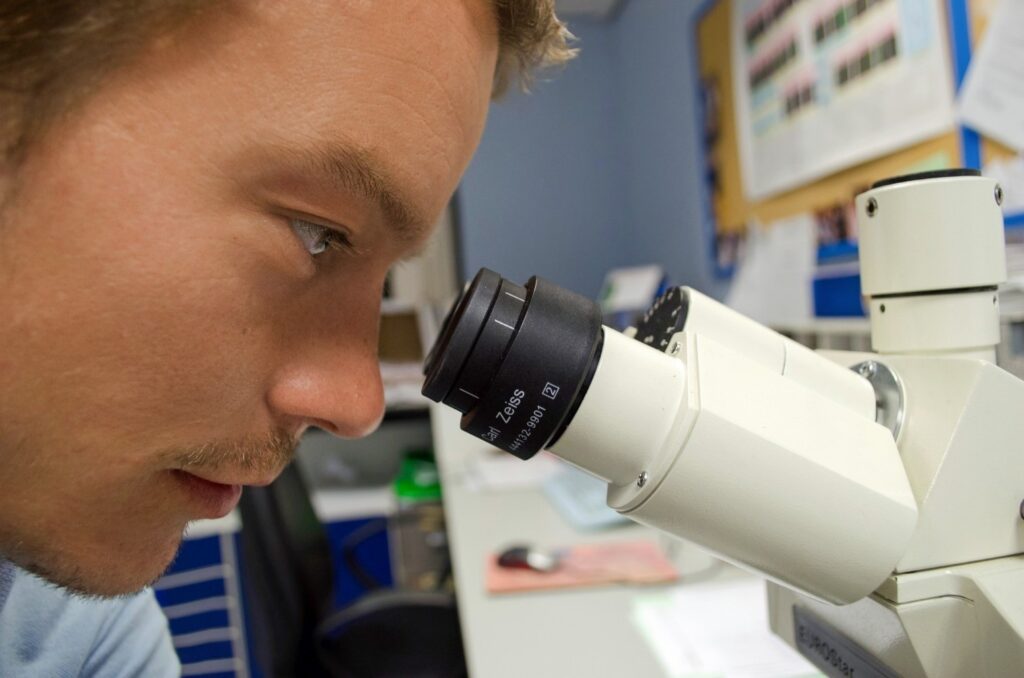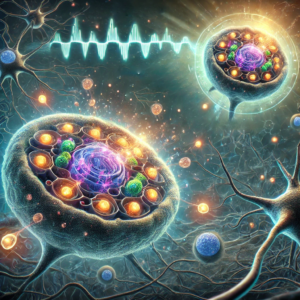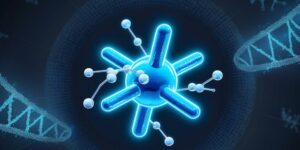Why Slowing Aging Research Matters to Us All

Lab trials explore new ways of slowing aging in non-human animals.
- Anti-aging expert says slowing aging by 2% could save more money than curing cancer.
- Professor Adam Salman tells all about groundbreaking anti-aging research.
- A dirt drug called rapamycin (Rapa) has the potential to extend lifespan.
- Uncovered: the surprising role tiny animals play in the latest aging studies.
Meet the Speakers
The Aging Science Podcast is hosted by Kamil Pabis, aka The Aging Scientist. Pabis has the ability to explain complex scientific concepts to a broader audience. In this episode, he interviews Professor Adam Salman, a leading expert in aging research. Salman talks about the things that have the most influence on how we age. Together, they explore groundbreaking studies. You will learn about potential interventions that affect not only human lifespan but also health span. One of those interventions is an exciting drug with serious anti-aging potential called rapamycin (Rapa).

But first, why is aging research so important? Let’s find out.
Slowing Aging: Secrets to Living Longer and Healthier
Aging is a natural process and an inescapable part of any life cycle. Despite what many think, anti-aging research is not trying to help us live forever, though it does look at extending lifespan. The goal—and discussion of this podcast—is finding ways to prevent premature deaths caused by age-related diseases. In other words, improve longevity (lifespan) by staying healthy for longer (healthspan).
This achievement would significantly reduce the burden of age-related diseases. It’s the reason scientists are passionate about unraveling the mechanisms of aging.
Did you know that slowing aging by a couple of percent would save more money than eradicating cancer?
Kamil Pabis
Key Concepts in Aging, Caloric Restriction, and AMPK
Eating too much food too often makes you age faster, says Professor Adam Salman. He explains why overconsumption can accelerate the aging process. Research has shown that caloric restriction slows aging in various species. It works by activating pathways called AMPK (AMP-activated protein kinase). Think of AMPK as a fuel gauge for your cells that helps regulate energy levels. AMPK acts like a cellular power manager. It turns processes ON and Off to ensure every cell has the energy it needs to function properly.
Caloric restriction and the drug rapamycin affect similar pathways related to aging. Still, the effects are not identical, but they do overlap. The suggestion is that Rapa has great potential as a caloric restriction mimetic or anti-aging activator. Another drug mentioned with similar possibilities is Guanidine propionic acid. Even though both drugs affect aging, they work in different ways. The speakers then go on to look at the other aging contributor, stress.
Stress, Aging, and the Role of Oxidative Stress

Stress comes in many forms, but it’s never a good thing whenever it is long-lasting or chronic. Oxidative stress is one type of stress that can speed up the aging process. But what is it, exactly? The best way to describe oxidative stress is to use an analogy, so think of it like rusting cells. Scientists call the rust makers free radicals, and the rust removers antioxidants. Too much long-term rusting damages the body’s building blocks and speeds up aging.
As Professor Salman explains, science aims to reduce the damage caused by free radicals. The solution is to enhance the body’s ability to manage and neutralize these rust makers. Stress resistance coupled with caloric restriction slows aging processes. That’s because minimizing cellular damage helps maintain better cellular function. And better cellular function delays the onset of age-related diseases and increases lifespan.
The theory is simple: strengthen the body’s defense mechanisms against certain stresses. Striking the right approach is a little trickier, though.
Resisting multiple types of stress can help slow the aging process.
Professor Adam Salman
How Tiny Bugs Help Scientists Study Human Aging
Scientists use short-lived bugs like worms and flies to help with aging research. There are several reasons for this. These tiny animals have simple genetics passed down from parents to offspring. Despite fast aging, they also share some genes with people, which is why they are helpful. Studying how the genes of bugs may relate to human lifespan does have drawbacks. Or, as Professor Salmon points out, none of these models are human.
So, while tiny insects are useful, they’re not perfect stand-ins. Monkeys are more helpful than tiny invertebrates in understanding how we age.
Marmoset Monkeys Advance Rapamycin Research

Rapamycin or Rapa excites scientists as a “potential” longevity drug in two ways. One is its seeming power to extend lifespan and the other to improve healthspan. Recent studies explored its impact on aging in marmosets. These tiny new world monkeys share similarities with humans in aging processes. So, the study’s aim was to see if Rapa could extend lifespan and healthspan markers in primates. Early results in the treatment group are promising. But why marmosets?
There are a couple of reasons why these miniature primates make such suitable test subjects. Marmosets are tiny, fast-aging, and lab-ready. These factors make them good for longevity studies. They need less of the drug and can live in existing facilities with controlled environments. Also, understanding Rapa’s effects on primates carries more influence on its potential human impact.
This table shows the most noteworthy marmoset health checks and their findings.
| Step | Description |
|---|---|
| Blood Chemistry | Mild changes over time. |
| Blood Counts | Checked regularly; no weakening of the immune system noted. |
| Glucose Levels | Some small, temporary rises but no major increases |
| Lipid Profiles | Measured as part of an overall health check. |
| Kidney Function | Improved kidney function observed in rapamycin-treated animals. |
| Immune Response | No significant weakening observed. |
| Body Weight | Stayed within normal range; no major weight gain. |
| Pathological Analysis | Full analysis to determine the cause of death and overall health. |
The results showing that rapamycin extends the lifespan of marmosets, as discussed with Adam, are absolutely amazing.
Kamil Pabis
Lab to Life: Challenges of Making Anti-Aging Real
Lab discoveries are exciting, but getting them to work in real people is tricky. Here’s why:
Tiny test subjects: Experiments have involved worms, flies, and other invertebrates. Later, monkeys were the test subjects of aging studies. But as Professor Salmon points out, animal studies, though vital, are not humans. Or, to put it another way, what works on a worm may not have the same impact on us. That doesn’t make animal studies inapt. Quite the reverse, they help pave the way for large-scale clinical trials on people.
New drugs, new risks: Having a pill that could help people live longer, healthier lives is a dream. The problem is that any new drugs may have side effects, potentially severe ones. Let’s say, for example, rapamycin helped humans age slower. But what if the cost of that was a weakened immune system or issues with blood sugar (glucose metabolism)? Now, the cons outweigh the pros, and that’s why careful human research is so critical.
Scientists observe the health of trial animals at every stage. They also adjust the amounts of drug based on how the body handles it. This approach ensures that any new treatments are as safe as possible for the subjects. Still, safety in animal subjects will not always translate to safe usage in humans. It might, but it might not, too. So, human studies must follow tests on non-human animals, but only when it is considered safe to proceed.
Whenever I look at the evidence… I don’t ask whether it works in every strain or every species because that’s impossible. But I usually try to ask whether it works better than expected by chance, and this will make me more hopeful for humans.”
Kamil Pabis
AMPK: The Key to Energy and Slowing Aging?
Inside your body is a special system called AMPK that controls how you use energy. Professor Salmon notes the significance of this system for slowing aging or aging well. Some compounds, like the complex molecule GPA can even give AMPK a boost.
Scientists who study aging use a program called the Interventions Testing Program. (ITP) to test these things. They basically put compounds through a series of tests to see if they really help us live longer. It’s like a tough competition. That means only the most promising substances, like rapamycin, move to the next round of testing. This way, scientists can be more confident that the stuff they study may work as hoped.
This table gives a simple overview of how Interventions Testing Program works:
| Step | Description |
|---|---|
| Proposal Submission | Compounds proposed by researchers reviewed by the ITP committee. |
| Selection | 6–8 compounds are selected for testing every year. |
| Testing Sites | Testing conducted at three sites: University of Michigan, Jackson Labs, and UT Health San Antonio. |
| Outcome Measurement | Slowing aging, lifespan, and health effects tested. |
| Publication of Results | All results published, whether positive or negative. |
Debates and Criticisms in Slowing Aging Research
The aging research field faces scientific debates and criticisms like any other. Most critics have questions around using tiny, non-human animal test subjects. They have a point, especially with experiments on critters like worms and flies. No one doubts the rapid, cost-effective insights offered by insect models. Still, any findings from these will not always translate to mammals. So, there must be bigger, much better trials on more complex animal subjects before we get too excited.
Animal Findings and Health Markers in Aging Research
Professor Salmon acknowledges that learning what interventions and how much people need to live longer is complex. Tiny critters are great for learning basic concepts, but that also means basic research. Animal subjects are not going to help us find the ideal approach for humans or at the right dose, either. Even so, all studies are valuable and serve as a stepping stone to the next level of research. So far, it is the marmoset research that’s been causing excitement in aging research circles.
Marmosets: The Next Frontier in Anti-Aging Research
Marmoset trials are a big deal. So far, the Rapa treatment studies on tiny primates have shown real promise. The next level of experiments will place focus on the long-term effects. As with any drug, the secret is to find the sweet spot, usually the lowest dose with the most impact. Scientists hope the ideal Rapa dosage for monkeys will be equal or similar to that needed for humans. This next level research will also look closely at overall health over the long term. It’s critical to see how long-term rapamycin might affect areas other than lifespan.

Closing Comments
Host Kamil Pabis reflects on the exciting future of research behind slowing aging and aging well. The insights gained from studies in marmosets and other models pave the way for groundbreaking treatments. The journey from lab to life is complex, of course. Despite that, the main takeaway from this discussion is that the ongoing rapamycin research holds genuine promise. It seems to offer real potential for extending lifespans and improving the quality of life as we age.




